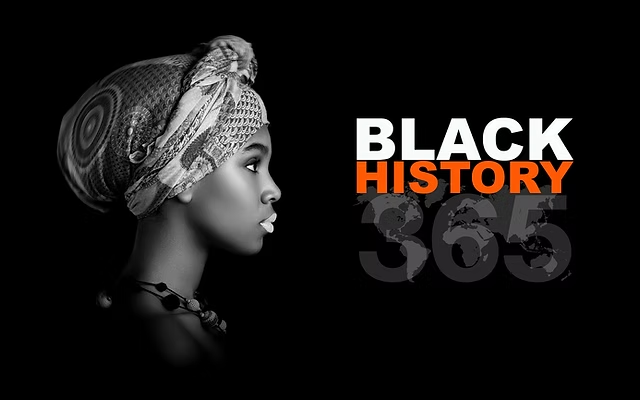Introduction to Black History Nwbka
Black history is rich, vibrant, and deeply woven into the fabric of America. Yet, many people may not realize how much it extends beyond just one month of recognition. Black History Nwbka sheds light on this crucial narrative that deserves our attention throughout the year. This guide will take you through its origins, celebrate key figures who shaped it, and highlight significant events that continue to influence society today. Join us as we embark on a journey to honor and uplift black history in all its glory!
The Origins of Black History Nwbka
The term “Black History Nwbka” represents a dedicated effort to celebrate and recognize the achievements of Black individuals throughout history. Its origins trace back to the 1920s when Carter G. Woodson, known as the father of Black history, initiated Negro History Week.
Woodson aimed to highlight the contributions often overlooked in mainstream narratives. He believed that understanding one’s past was crucial for empowerment.
As time passed, this week evolved into what we now know as Black History Month, with Nwbka emphasizing local community involvement and education. The movement has grown globally, inspiring events and discussions around racial equality and justice.
Today, it serves not just as a remembrance but as a call to action for ongoing advocacy against systemic injustices faced by African Americans.
The Importance of Celebrating and Honoring Black History
Celebrating and honoring Black history is vital for understanding the journey of a community that has shaped our society. It provides recognition to the struggles, achievements, and contributions of Black individuals throughout time.
Acknowledging this rich history fosters respect and appreciation among diverse cultures. It encourages dialogue about social justice and equality, helping dismantle stereotypes.
Moreover, learning about key figures in Black history inspires future generations. Their stories often embody resilience and creativity, motivating individuals to pursue their dreams regardless of obstacles.
Incorporating Black history into education promotes inclusivity. It enriches curriculums with varied perspectives essential for shaping well-rounded citizens.
Celebration serves as a reminder that every narrative matters. When we honor these experiences collectively, we pave the way for unity and progress in society.
Key Figures in Black History
Throughout history, many remarkable individuals have shaped the narrative of black history. Figures like Harriet Tubman demonstrated extraordinary bravery in leading enslaved people to freedom via the Underground Railroad.
Martin Luther King Jr. emerged as a beacon of hope during the Civil Rights Movement, advocating for nonviolent resistance against racial injustice. His powerful words continue to inspire generations.
Meanwhile, Malcolm X brought attention to systemic racism and emphasized self-determination. His perspective challenged mainstream narratives and encouraged empowerment within African American communities.
Rosa Parks’ simple act of refusing to give up her bus seat ignited a movement that changed legislation forever.
These icons represent just a fraction of countless heroes who fought tirelessly for equality and justice. Each contributed uniquely, leaving an indelible mark on society while inspiring future generations to advocate for change.
Significant Events in Black History
Significant events in black history shape not only the narrative of African Americans but also influence the cultural fabric of the entire nation.
The Emancipation Proclamation, issued by President Abraham Lincoln in 1863, marked a turning point. It declared freedom for enslaved people in Confederate states and laid groundwork for future civil rights advancements.
The Civil Rights Movement of the 1950s and 1960s stands as another critical moment. Activists like Martin Luther King Jr. led peaceful protests to combat racial injustice, culminating in landmark legislation such as the Civil Rights Act of 1964.
Another pivotal event is Barack Obama’s election as President in 2008, symbolizing progress within American society. His victory inspired countless individuals to believe that change is possible through perseverance and unity.
These moments continue to resonate today, reminding us of both struggles and triumphs throughout black history. Each event contributes uniquely to a broader understanding of resilience and hope.
Celebrating Black History Beyond February
Black History should not be confined to a single month. The richness of Black culture, achievements, and struggles deserves recognition year-round.
Communities can host events like film screenings, workshops, and art exhibitions that celebrate Black contributions throughout the calendar. These gatherings foster understanding and unity.
Educators play a crucial role by integrating Black history into their curricula all year long. This approach encourages students to learn about influential figures beyond themed months.
Social media also provides an avenue for continuous celebration. Sharing stories, quotes, and resources keeps awareness alive in our daily conversations.
Support local businesses owned by people from the Black community as part of your commitment to celebrating this vital heritage consistently. Engaging with diverse cultures enriches everyone’s experience and promotes inclusivity in society.
Conclusion
Black History Nwbka represents a vital part of our collective narrative. It’s more than just a month-long observance; it’s an ongoing journey. Each story shared and each event commemorated fosters understanding and connection.
Celebrating this history encourages growth, empathy, and respect for diverse experiences. It also empowers future generations to carry the torch forward, ensuring that the lessons learned are not forgotten.
As we engage with these rich stories and monumental figures, let’s make it a priority to incorporate them into everyday conversations.
By doing so, we promote awareness year-round. The legacy of Black history is alive in art, culture, education, and community initiatives all around us.
Embracing this heritage enriches all lives while inspiring change within society. Every effort counts in honoring those who came before us and paving the way for what lies ahead.
FAQs
Q: What does Nwbka stand for in relation to Black History?
A: Nwbka stands for National Black Knowledge Association. It serves as a platform to promote awareness, education, and understanding of Black history and culture.
Q: Why is it important to celebrate Black History?
A: Celebrating Black history helps recognize the contributions of African Americans throughout history. It fosters community pride and encourages discussions on social justice issues that still affect society today.
Q: Are there specific themes each year during Black History Month?
A: Yes, each year has a designated theme that focuses on particular aspects or figures in black history. This helps guide educational activities and celebrations across various communities.
Q: How can I participate in celebrating Black History beyond February?
A: You can engage by attending workshops, reading books by black authors, supporting black-owned businesses, or participating in local events that highlight African American culture throughout the year.
Q: Where can I find resources about key figures in black history?
A: Numerous online platforms provide comprehensive databases dedicated to key historical figures. Libraries also often have sections devoted specifically to African American literature and biographies.
Q: Is there an official website for Nwbka?
A: Yes, Nwbka maintains an official website where you can find resources related to events, education programs, and ways to get involved with promoting black knowledge within your community.











